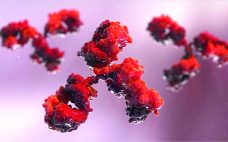The therapeutic benefits of monoclonal antibodies (MAbs) have been demonstrated in recent decades with uncontestable success as treatments for human disease. Despite MAbs’ key features such as specificity, selectivity, and safety, the format has limitations (1, 2). Bispecific antibodies may overcome number of difficulties (3). Multiple formats of bispecific antibodies have been developed, although only the κλ-body is fully human and devoid of linkers or mutations. It requires no genetic modifications of heavy and light chains and results in bispecific antibodies…
Author Archives: Judith Vajda
Efficient Removal of Endotoxins and Viruses By Anion-Exchange Chromatography
Various unit operations are needed in downstream processing (DSP) of biologics to remove process‑related impurities such as host‑cell proteins, nucleic acids, viruses, and endotoxins. This application note describes the potential of a salt‑tolerant anion‑exchange resin to achieve outstanding clearance of endotoxins and viruses. Introduction Endotoxins are lipopolysaccharides (LPS) originating from cell membranes of Gram‑negative bacteria. They are frequent contaminants of recombinant proteins produced in microbial expression systems. On the other hand, expression of more complex proteins in eukaryotic systems carries…
Cost Estimation for Protein A Chromatography: An In Silico Approach to MAb Purification Strategy
Monoclonal antibody (MAb) production has adopted an accepted technology platform for downstream processing (1). The need for more economic processes has been addressed by increasing MAb titers in fermentation and aiming toward greater bioreactor volumes to increase productivity. Consequently, cost pressures are now passed on to downstream process groups. Membrane and chromatography resin savings are more important for MAb processes than ever before, with highly productive cell cultures generating large volumes of process fluid to purify (2). Traditionally, protein A…
Separation of Monoclonal IgG and Its Aggregates Using TOYOPEARL MX-Trp-650M
The importance of proper aggregate removal during polishing of a monoclonal antibody (MAb) for therapeutic use is beyond controversy. Severe anaphylactic reactions have been described in the literature for the application of aggregated proteins as a drug byproduct. Traditionally, ion-exchange chromatography (IEX) or hydrophobic-interaction chromatography (HIC) are used to purify a structurally homogeneous product. In case those platforms do not satisfy the requirements for MAb polishing, advanced chromatography resins need to be considered. For instance, mixed-mode stationary phases such as…



